Female characters in comics have often been marginalized and their abilities and leadership skills have been downplayed in favor of their relationships with male characters. This is evident in the portrayal of characters such as Black Widow, Storm, She-Hulk, Scarlet Witch, Rogue, Invisible Woman, Mantis, and Gamora.
Black Widow
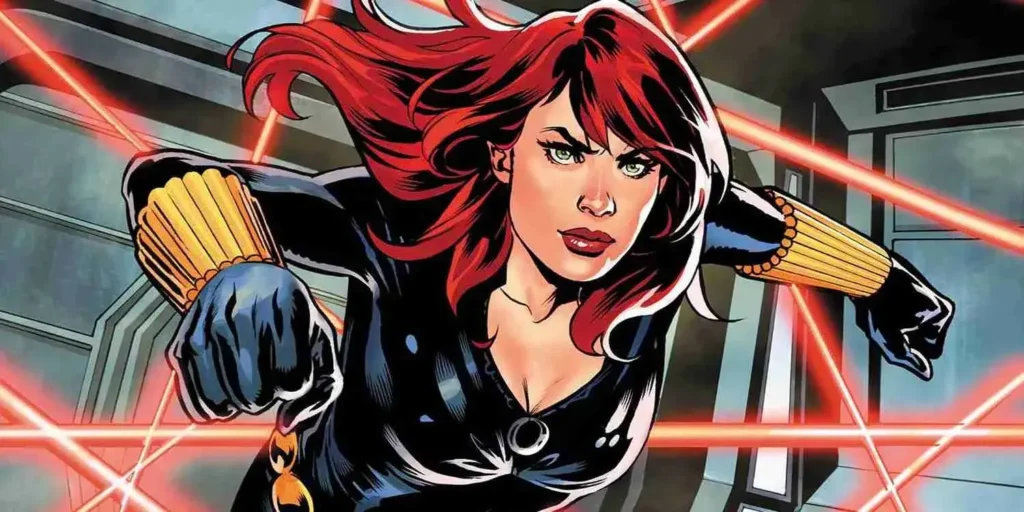
Black Widow, a founding member of the Avengers and skilled spy, has been sexualized and her backstory has been retconned multiple times, undermining her agency and importance as a character.
Storm
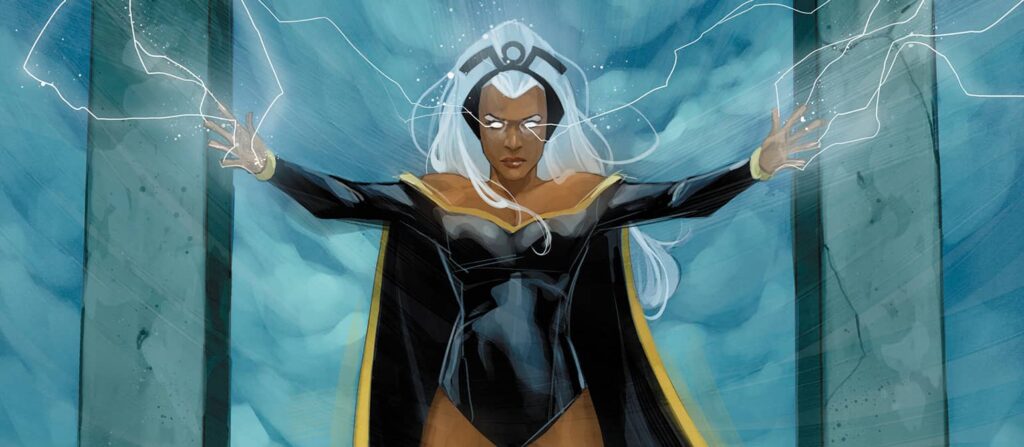
Storm, one of the most powerful mutants in the X-Men, has often been reduced to a love interest for male characters and her leadership abilities have been understated.
Medusa
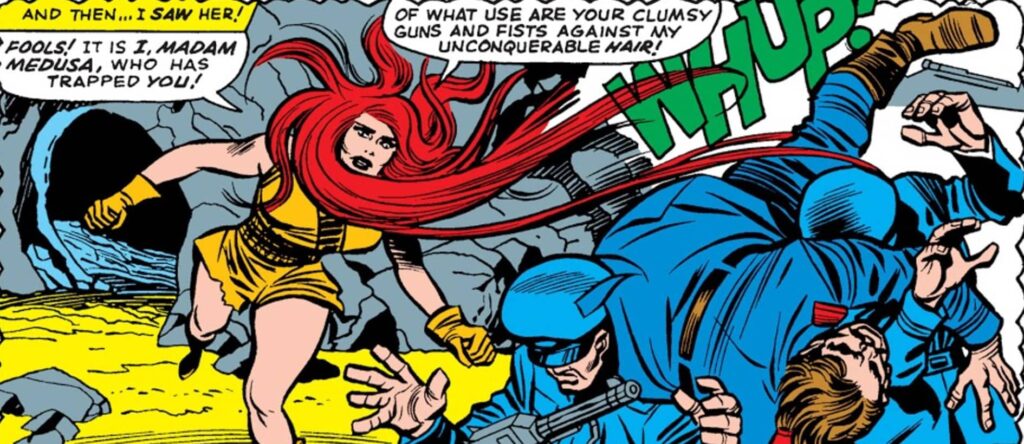
Medusa, also known as the queen of the Inhumans, is a powerful character with the ability to control her hair like tentacles, but her comic book appearances have faced criticism for a lack of characterization and development. Despite her leadership role as the queen of the Inhumans, her comic book storylines often revolve around her relationships with male characters and her abilities as a leader are not explored enough. In addition, her costume is often hyper-sexualized. These issues with her representation and portrayal, it’s important for Marvel comics to give Medusa the depth and development she deserves as a powerful female character.
Shuri
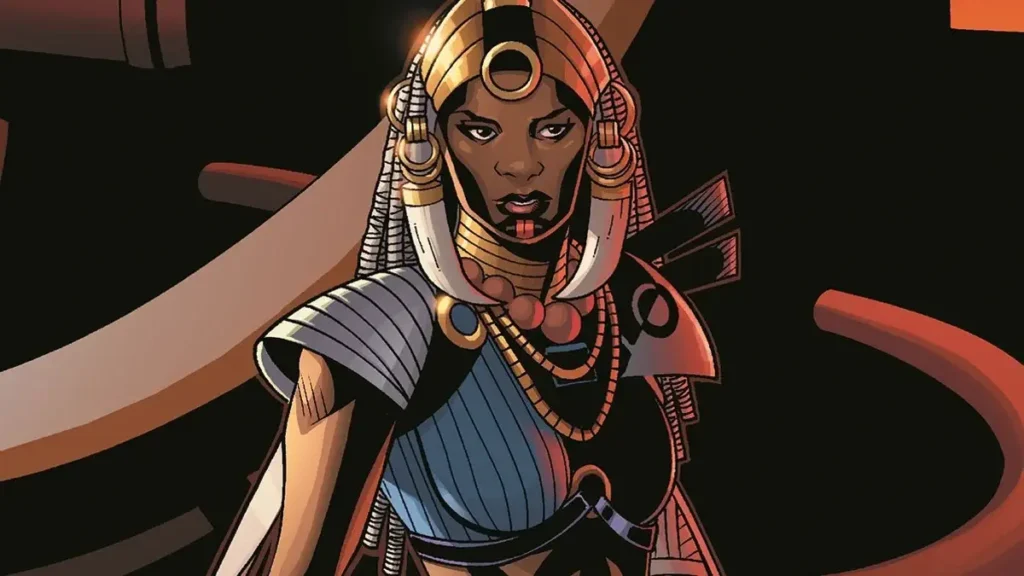
Shuri, also known as the princess of Wakanda, is a skilled scientist and warrior, but her comic book appearances have faced criticism for a lack of characterization and development. Despite her intelligence and leadership skills, her comic book storylines often revolve around her relationships with male characters and her abilities as a scientist and warrior are not explored enough. In addition, her abilities as a leader and innovator are not shown enough. These issues with her representation and portrayal, it’s important for Marvel comics to give Shuri the depth and development she deserves as a powerful female character.
Ms. Marvel
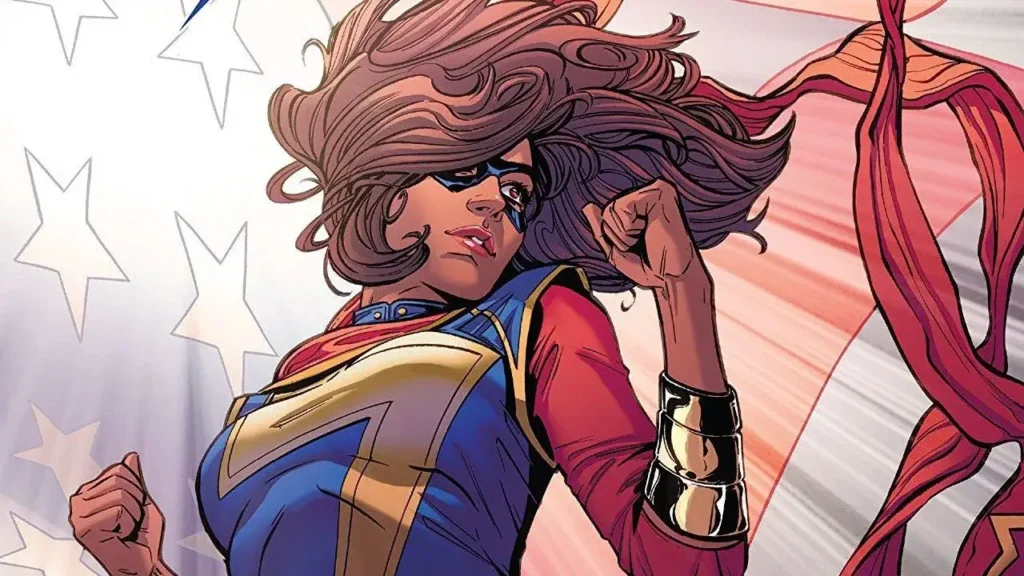
Kamala Khan, also known as Ms. Marvel, is a teenage superhero with shape-shifting abilities, but her comic book appearances have faced criticism for a lack of characterization and development. Despite her unique abilities and relatable backstory as a young Muslim girl, her comic book storylines often revolve around her relationships with male characters and her abilities as a leader are not explored enough. In addition, her cultural background and heritage are not explored enough. These issues with her representation and portrayal, it’s important for Marvel comics to give Ms. Marvel the depth and development she deserves as a powerful female character.
She-Hulk
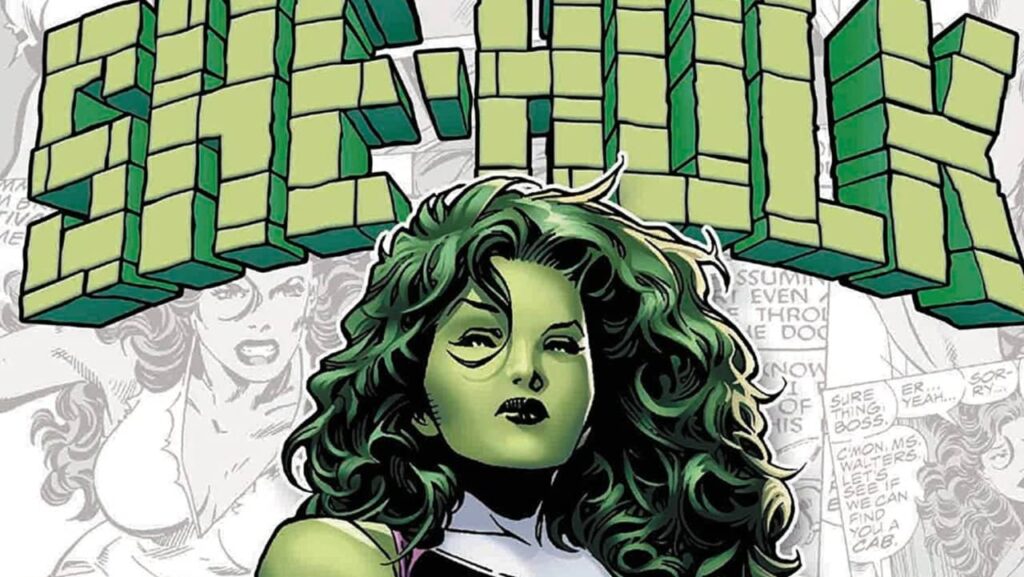
She-Hulk, a skilled lawyer and superhero, is often portrayed as overly sexualized and her intelligence is not always respected. Scarlet Witch, a powerful and complex character, has been portrayed as a damsel in distress and her mental health struggles have been used for shock value, rather than explored in a meaningful way.
Captain Marvel
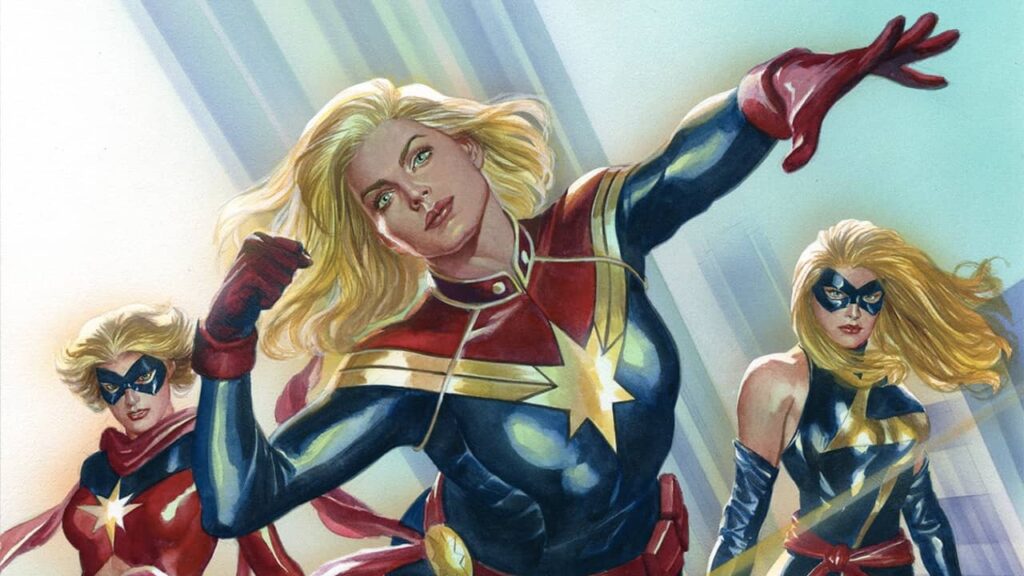
Captain Marvel, also known as Carol Danvers, is one of the most powerful characters in the Marvel universe, but her comic book appearances have faced criticism for a lack of characterization and development. Despite her incredible abilities and leadership skills, her comic book storylines often revolve around her relationships with male characters and her backstory has been retconned multiple times. Also, there’s a lack of representation of her as a military officer, and her abilities as a pilot are not explored enough. In addition, in some comic books, her costume is often hyper-sexualized. These issues with her representation and portrayal, it’s important for Marvel comics to give Captain Marvel the depth and development she deserves as a powerful female character.
Wasp
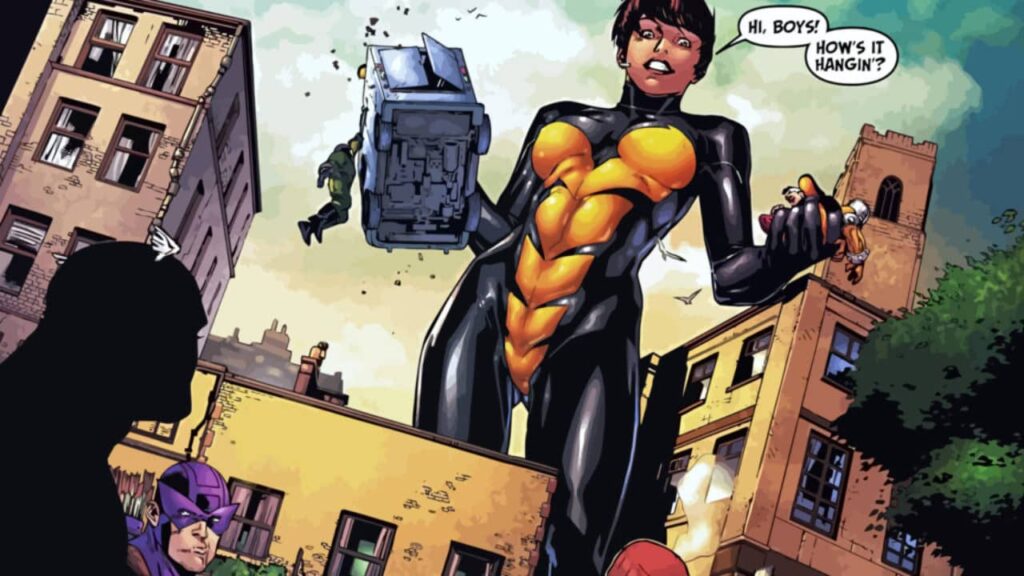
Wasp, also known as Janet van Dyne, is a founding member of the Avengers and a skilled scientist, but her comic book appearances have faced criticism for a lack of characterization and development. Despite her intelligence and leadership skills, her comic book storylines often revolve around her relationships with male characters and her abilities as a scientist are not explored enough. In addition, her costume is often hyper-sexualized. These issues with her representation and portrayal, it’s important for Marvel comics to give Wasp the depth and development she deserves as a powerful female character.
Rogue
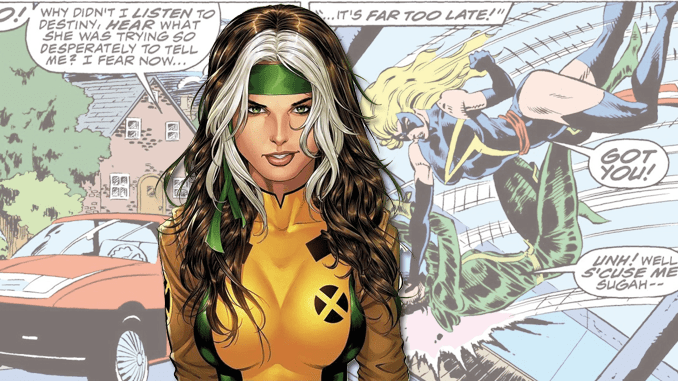
Rogue, a powerful mutant with the ability to absorb others’ powers, has often been reduced to being a love interest for male characters and her character development has been inconsistent.
Invisible Woman
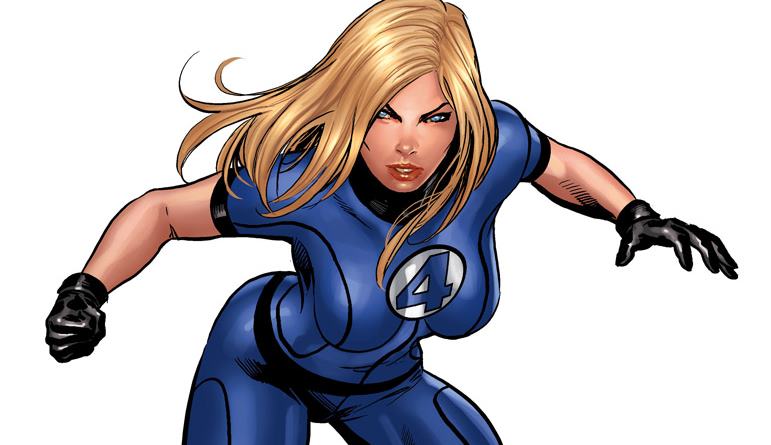
Despite being a founding member of the Fantastic Four and a skilled leader, Invisible Woman’s abilities and leadership have often been downplayed in favor of her relationship with Mr. Fantastic.
Jean Grey
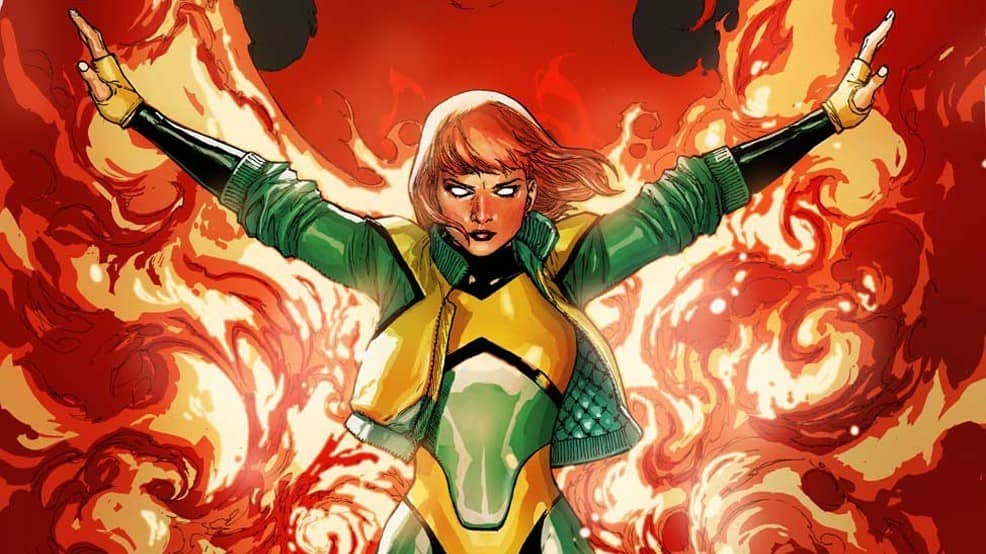
Jean Grey, also known as Marvel Girl or Phoenix, is a powerful mutant and member of the X-Men, but her comic book appearances have faced criticism for a lack of characterization and development. Despite her incredible powers and leadership skills, her comic book storylines often revolve around her relationships with male characters and her backstory has been retconned multiple times. Also, her abilities as a telepath are not explored enough. These issues with her representation and portrayal, it’s important for Marvel comics to give Jean Grey the depth and development she deserves as a powerful female character.
Mantis
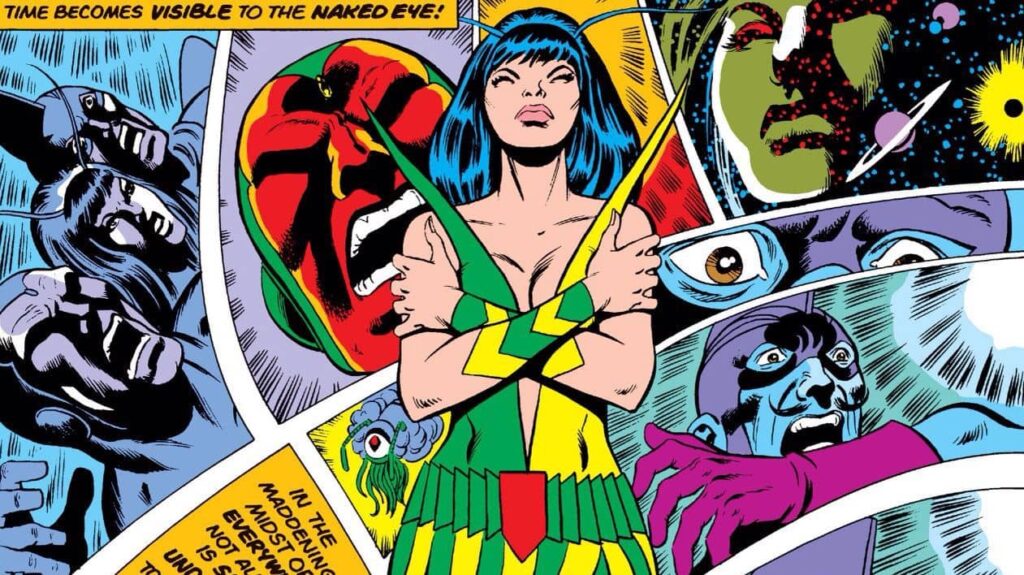
Mantis, a skilled martial artist and telepath, has often been reduced to being a love interest for male characters and her abilities have been underutilized in her comic book appearances.
Gamora
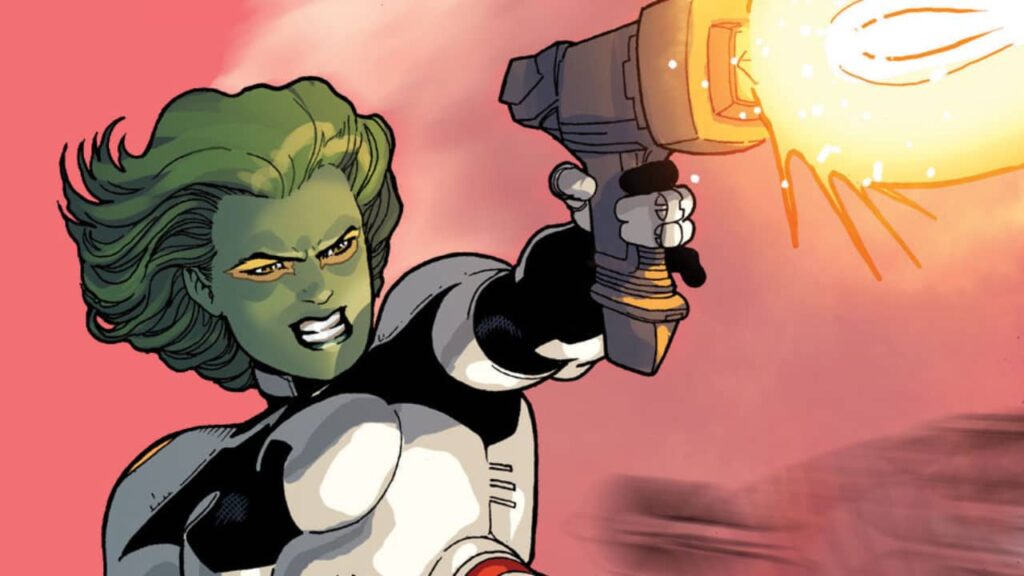
Despite being a skilled warrior and member of the Guardians of the Galaxy, Gamora’s character development has been inconsistent and her backstory has been retconned multiple times.
Female characters in comics have been subjected to problematic and stereotypical portrayal that undermines their abilities and agency. It’s high time for comics industry to give them the respect and representation they deserve.











